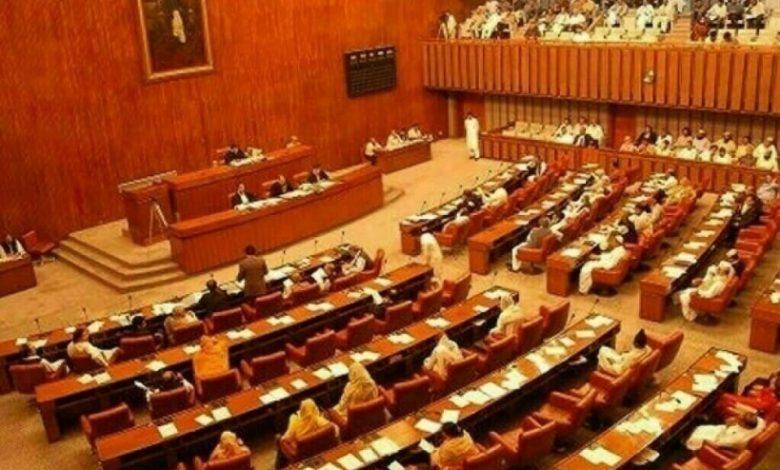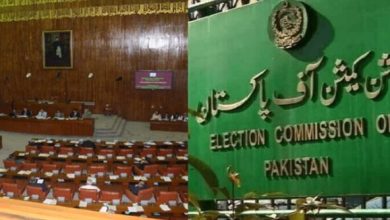Peaceful Assemblies and Public Order Act Approved
These are eroding people's right to assemble, you send this bill to the committee, PTI Protests

Islamabad: The National Assembly has approved the Peaceful Assemblies and Public Order Act 2024 for the federal capital, Islamabad, following its passage in the Senate. The bill was passed during a session chaired by Speaker Ayaz Sadiq on Friday. The session was initially delayed due to the absence of federal ministers, leading Speaker Sadiq to temporarily adjourn the meeting. The session resumed properly after the arrival of Federal Minister Azam Nazeer Tarar.
During the session, Barrister Daniyal Chaudhry presented the bill to regulate rallies and processions in Islamabad. The opposition condemned the bill, calling it an authoritarian measure. Minister of Law Azam Nazeer Tarar responded by stating that the frequent gatherings in Islamabad often paralyze the city, and that the capital has effectively been turned into a cage.
Barrister Gohar argued that the bill infringes upon the right to assemble and urged sending the bill to committee for further review. Aamer Dogar criticized the hasty legislation, asserting that recent laws have been unfavorable to PTI and accusing the bill of being draconian. He questioned the urgency of the private member’s bill and proposed amendments.
The Assembly ultimately approved the bill to regulate gatherings in Islamabad. The session was adjourned until Monday at 5 PM.
Key Provisions of the Bill:
- The Coordinator of the Assembly must submit a written request to the District Magistrate 7 days prior to the meeting.
- If valid reasons are not provided, the District Magistrate may deny permission and must provide written reasons for the denial.
- Meetings must be held at designated locations or government-approved areas.
- The District Magistrate will assess the security situation and obtain clearance from law enforcement before granting permission.
- The District Magistrate can prohibit assemblies in specific high-security zones or red zones declared by the government.
- The District Magistrate has the authority to restrict assemblies if there are risks to public safety or national security, or if daily activities are disrupted. Written reasons for the prohibition must be provided.
- Individuals affected by the prohibition can appeal within 15 days.
- The District Magistrate can instruct the police to disperse assemblies that threaten public order, and if not dispersed, the police can use force.
- Members of illegal assemblies can be arrested and detained. Those convicted can face up to three years in prison and fines. Repeat offenders may face up to ten years of imprisonment.




